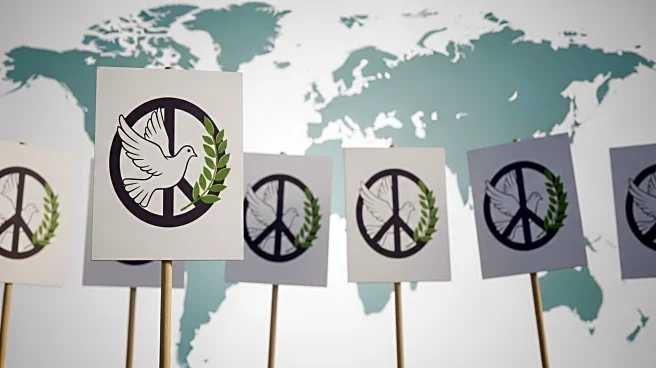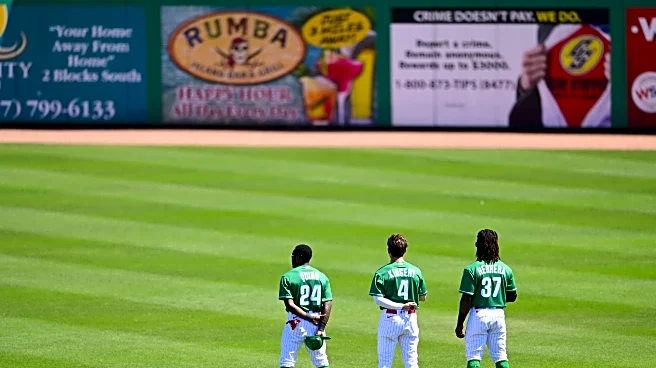What's Happening?
Tens of thousands of demonstrators gathered in Brussels to protest against the Israeli government's actions in Gaza, calling for EU member states to impose firm sanctions on Israel. The protest, known as 'Red Line for Gaza,' saw participation from over 200 human rights groups and aid agencies, including Oxfam, Doctors without Borders, and Amnesty International. The demonstration follows Belgium's announcement to recognize a Palestinian state at the United Nations General Assembly and impose sanctions on Israel under certain conditions. Organizers estimate 110,000 people attended the march, which stretched 3.5 kilometers across the Belgian capital.
Why It's Important?
The protest highlights growing public pressure on EU politicians to take a stronger stance against Israel's actions in Gaza. The involvement of major human rights organizations underscores the international concern over the humanitarian situation in the region. The demonstration reflects a broader European solidarity movement, with similar protests occurring across the continent. The call for sanctions and recognition of a Palestinian state could influence EU foreign policy and impact diplomatic relations with Israel. The protest also emphasizes the divide between public sentiment and political action within the EU.
What's Next?
Belgium's decision to recognize a Palestinian state and impose sanctions on Israel is set to be discussed at the United Nations General Assembly later this month. The ongoing protests may continue to pressure EU member states to adopt a unified stance on the issue. The Global Movement to Gaza, a coalition of 44 countries, is actively working to end the blockade of Gaza, with efforts such as the Global Sumud Flotilla aiming to establish a humanitarian corridor. The outcome of these initiatives could affect future EU policies and international diplomatic efforts regarding the Israeli-Palestinian conflict.
Beyond the Headlines
The protest in Brussels is part of a larger European solidarity movement responding to Israel's expanded offensive in Gaza. The movement has seen significant participation across various countries, indicating widespread concern over the humanitarian conditions in the region. The symbolic 'Red Line for Gaza' represents a non-negotiable stance on human rights and the protection of civilians. The protest also highlights the role of grassroots coalitions in influencing international policy and advocating for change.









